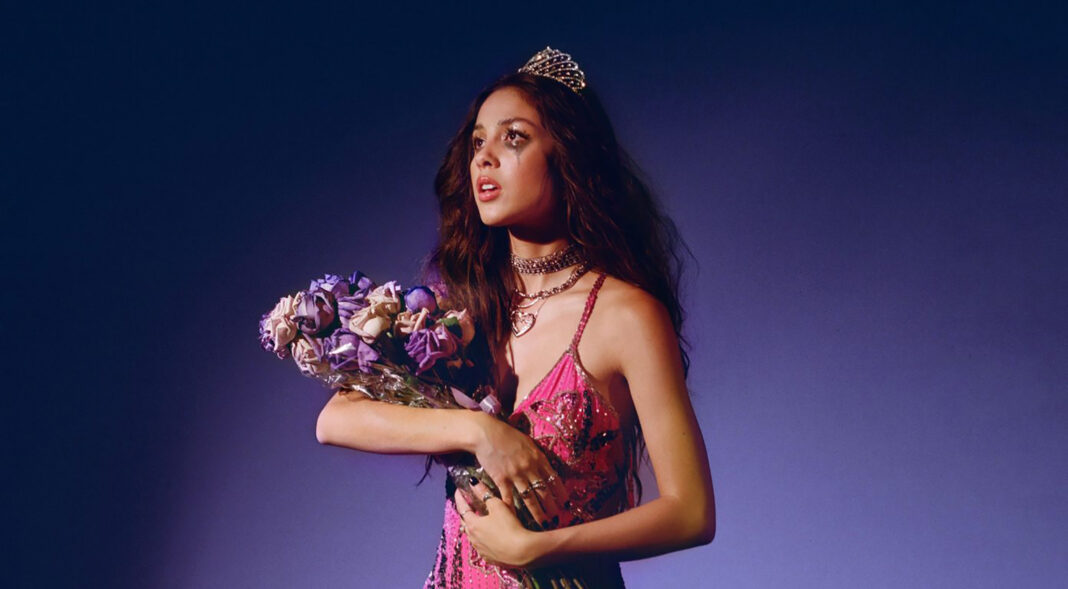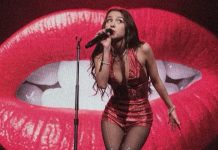When 2021 began, we were all hopeful. 2020 had been a shitshow and as we grimly cheersed each other via zoom on New Year’s Eve, there was a sense that surely – surely – a new calendar would bring some kind of resolution.
COVID was a 2020 problem; in 2021, we would gig again, gather again, and take off the masks. Except things didn’t quite work out like that, did they? This year has undoubtedly been an improvement on the last, but the impact of the pandemic has still been acutely felt across all facets of society, including music.
If 2020 allowed us to see a little more of artists’ bedrooms via live streams and TikToks, 2021 was where they really opened up their minds, spilling it all out in their lyrics. In the last 12 months, the majority of the greatest songs and albums have come from a place of devastating honesty, re-evaluating what we value in entertainment. Nobody captured that delicate intermingling of despair and tentative January hope like Arlo Parks. Having captured the nation’s hearts with ‘Black Dog’ she doubled down to give us the first great album of the year with ‘Collapsed in Sunbeams’, described by The Forty-Five as “built on everyday detail: noticed things and lived experience.” Intricate in its descriptions of sight and sound, it was a grounding record, but one that was generous in its honesty around difficult subjects; depression, homophobia, unrequited love. On ‘Eugene’, she sings “hey/ I know I’ve been a little bit off and that’s my mistake/ I kind of fell half in love and you’re to blame”. You can imagine her saying it in conversation; mundane but loaded with nervous sincerity. To write in such an understated but impactful way is a real talent, and one that would later secure her the Mercury Music Prize, comforting the nation in its softly-spoken catharsis.
Stateside, a different storm was brewing. If you didn’t know Olivia Rodrigo from her role on the Disney Channel, you will certainly know her now as the defining success story of 2021, the popstar who proved that there was absolutely still a market for 00s pop-punk angst and skilfully crafted ballads. She gave us a vessel to headbang out our pandemic frustrations (“good 4 u you look HAPPY and HEALTHYYYYY”), but also proved that a great popstar could unite all kinds of fans, transcending traditional boundaries of age or gender or even genre preference.
Closer to home, you might compare her musical triumph to that of Self Esteem – while Rodrigo spoke of endearingly epic teenage betrayal, insecurity and heartbreak, Rebecca Lucy Taylor talked about some of the other struggles of adulthood; sexual trauma, ‘life goals’ comparison and the exhausting threat of the male gaze. Both managed to weave in a self-deprecating sense of humour, utilising social media and music videos with open panache. As breakout artists who deliver something a little more candid than we’re necessarily used to, both demonstrate our appetite for popstars who are willing to admit when things truly suck, to present themselves in inherently vulnerable, less-than-flattering lights in order to tell a deeper story of relatable truth.
As summer became autumn, this kind of nuanced storytelling continued. On ‘Sometimes I Might Be Introvert’, Little Simz thrived at the zenith of her long-offered greatness, owning her own sensibilities in much-needed joy and solidarity (‘Woman’, ‘Protect My Energy, ‘Two World Apart’), but also in open frustration with herself, unravelling the pressures one faces to be at the top of her game. On ‘Gems’, she lays it bare; “I’m tryna be the greatest version of myself/ I know I’ve got a lot to learn and I can be stuck in my ways, yes/ But honestly more time/ I feel like I’m stuck between a rock and a hard place.” Popstar or not, it’s a challenge so many of us can relate to, whether it be the scrutinies of race and gender, of a difficult job or strained relationship, the sheer effort required to keep head above water in a global pandemic.
It’s not just female artists who were embracing the musical freedom of lyricism as open therapy. Unable to repeat his trick of observing hometown life to inspire his political lyrics, pandemic isolation meant that Sam Fender had to turn his gaze inward, digging deep into some of the suppressed pains of his childhood. On ‘Seventeen Going Under’, he unravels the makings of toxic masculinity, of difficult family dynamics, of the emotional and social sensitivities that have dragged him and his peers into dark places, all with the result of creating a record that felt much more personal and well-rounded than his debut. ‘Angel of Lothian’ and ‘The Dying Light’ have become quick fan favourites, capturing the endemic male suicide in the working-class, but also looking for some sense of tribute and determination to go on in the name of those who have been lost. It shares similarities with another great record from earlier in the year – For Those I Love’s self-titled, a deeply affecting testament to friendship and rebuilding from grief.
And then of course, we come to Adele, a late but devastating entry for the year of 2021. On top of all the aforementioned honesty, self-doubt and mourning, we were presented with ‘divorce babes, divorce’ in the form of ‘30’, her undisputed best work and a deeply detailed, generous story of her journey through romantic separation and self-discovery. She’s never exactly been shy when it comes to heartbreak, but even by Adele’s standards, ‘My Little love’ is particularly startingly, utilising voice notes that she recorded while talking to her son and friends in the early days of her separation. The audible crack of her speaking voice perfectly juxtaposes the unflappable elegance of her singing as she breaks down in tears: “I just feel really lonely/ I feel a bit frightened that I might feel like this a lot”. Much like Arlo Parks, it’s a simple sentiment but boldly spoken. How often do globally-renowned megastars really admit to being truly, properly afraid?
From Taylor Swift to Beyonce’s ‘Lemonade’ to the omnipresence of Ed Sheeran, we’ve been long been edging towards confessional pop songwriting, falling in love with storytelling that feels relatable and true.
A social-media age popstar is a very different thing to a pre-internet one, and artists have had to work to find ways to keep audiences’ attention, to maintain a sense of connection and closeness through regular disclosure. But with every groundbreakingly-candid Adele interview or every new popstar who reaches new heights by unapologetically confessing their biggest hopes and fears (Self Esteem, Little Simz ), we draw closer to an industry where all artists feel comfortable to be their authentic selves, to show the complex journey as well as the glossy finished result. Each one of those big British albums in particular – Adele, Arlo, Sam, Simz, Self Esteem — have been honest about feeling a bit shit, of struggling to make it through, but of ultimately finding ways to turn turmoil into triumph, to build hope from truly hopeless places. As all of the awards and record sales and sold-out tours show, we love these artists for their vulnerability, not in spite of it. 2021 might not have been the big pandemic breakthrough we hoped for; we end it with a demoralising sense of déjà vu (sadly not Rodrigo variant) over looming restrictions, government incompetence, and the very likely reality of another year under some kind of pandemic impact. These pop stars might not be entirely the same as us ‘regular folk’, but under this new world order, their work has never felt closer to the truths of our own.







